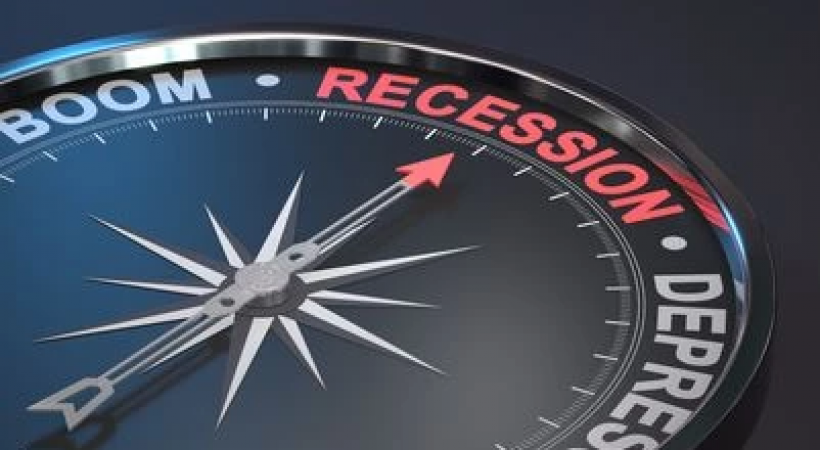
Washington: Strong inflation, high energy prices and rising interest rates are increasing the risk that the global economic slowdown could turn into a deep recession, according to policymakers around the world.
Following last week's disappointing US inflation report, the Federal Reserve is likely to continue raising interest rates sharply. The US dollar could rise as a result of rising import prices and debt servicing costs for many countries.
Energy supplies are being disrupted by major producers, raising prices and slowing the economy, especially in Europe. A new data set from China revealed a sharp drop in consumer spending, another sign of slowing economic growth.
Also Read: 2 out of every 3 CEOs in India anticipate a recession in 1 Year
The International Monetary Fund's managing director, Kristalina Georgieva, warned during a briefing on Thursday that "the worst is yet to come" as financial officials gathered in Washington for meetings organized by the IMF and the World Bank. "Recession risks are rising in many economies."
According to IMF predictions, more than a third of the world's economies will experience a decline in output next year, while the three largest economies - the United States, the European Union and China - will essentially freeze. The fund forecasts an overall growth rate of 2.7% in 2023, down from 3.2% this year.
Egypt's Finance Minister Mohamed Mait told a panel organized by the Center for Global Development on Wednesday that "the situation is worse during COVID-19."
High US inflation and the Fed's response are seen by many policymakers as the main threats to their economic prospects.
In September of this year, the US consumer price index rose 8.2%, with core prices—not including volatile food and energy prices—moving 6.6%. The rate was the highest in forty years, indicating that there is significant underlying price pressure.
The Fed is likely to go ahead with raising its benchmark interest rate by 0.75 percentage points next month as a result of the core-CPI reading. The report raises the possibility that policymakers will postpone the slowdown in rate hikes.
The Fed's accelerated rate hike this year has boosted the value of the dollar and prompted investors to move to the U.S. helped to attract markets. Imports and debt servicing are more expensive for many other countries when the dollar is strong. To protect its currencies, it also puts pressure on other central banks to raise their interest rates, which could slow growth.
The strength of the dollar continues to put pressure on our currencies, so we would all like to know how the Fed will react in the coming months, Hungarian central bank deputy governor Barnabas Virag said Monday at a gathering organized by the institute. International Finance.
This year, the US economy has shown signs of resilience. Although the labor market is cooling, it is still strong. The Commerce Department reported Friday that retail sales in the United States were unchanged from August and were up 8.2% in September from a year earlier.
Also Read: India to become 3rd largest economy, IMF says it is growing fast despite several challenges
The IMF has predicted that the US economy will grow at 1% in 2019, compared to 1.6% growth this year. According to economists surveyed by the Wall Street Journal, the likelihood of a US recession within the next 12 months has risen from 49% in a July survey to 63%.
Indonesia's Finance Minister Mr. Mulyani Indravati said in an interview that the growth of the US economy worries other countries as it allows the Fed to raise interest rates even more.
According to Mrs. Mulayani, a weak global economy, high interest rates and a strong dollar "could really hurt all the countries of the world."
He said a global recession is certainly conceivable.
The world economy is disrupted by Russia's conflict in Ukraine. 345 million people are at risk as a result of countries' inability to export vital foodstuffs and fertilizers.
According to IMF. The supply of natural gas from Russia to Europe has been cut, causing producers there to collapse and many economies to the brink of recession.
In line with what is happening with energy prices there, "Europe faces particularly severe stress," Treasury Secretary Janet Yellen said at a news conference on Friday. He added that many emerging market countries "face a number of serious issues."
Oil prices rose as a result of the Organization of the Petroleum Exporting Countries and its allies led by Russia recently announcing a significant production cut.
The International Energy Agency warned on Thursday that the decision could be a turning point for the world economy to go into recession.
There is no official definition of a global recession, but according to many economists, economic growth must exceed population growth by at least 1.1% for a recession to occur. The World Bank expects 1.9% global growth in 2019.
Also Read: Environmental start-ups plan to list carbon credits on the Hong Kong Stock Exchange
The president of the World Bank Group, David Malpass, said, "That's dangerously close to a global recession."
According to an IMF report released last week, another risk to the world economy is the potential for financial system instability as a result of rapidly rising interest rates.
A significant bond selloff last month caused by a U.K. tax cut plan intended to spur growth compelled the Bank of England to intervene in order to stabilise the financial system.
The market response was a factor in the U.K. government's decision to reverse significant portions of the plan on Friday.
Economic policy makers worldwide are keeping an eye on financial market tensions because they are aware from past experience that rising interest rates can lead to threats to financial stability from unanticipated sources.